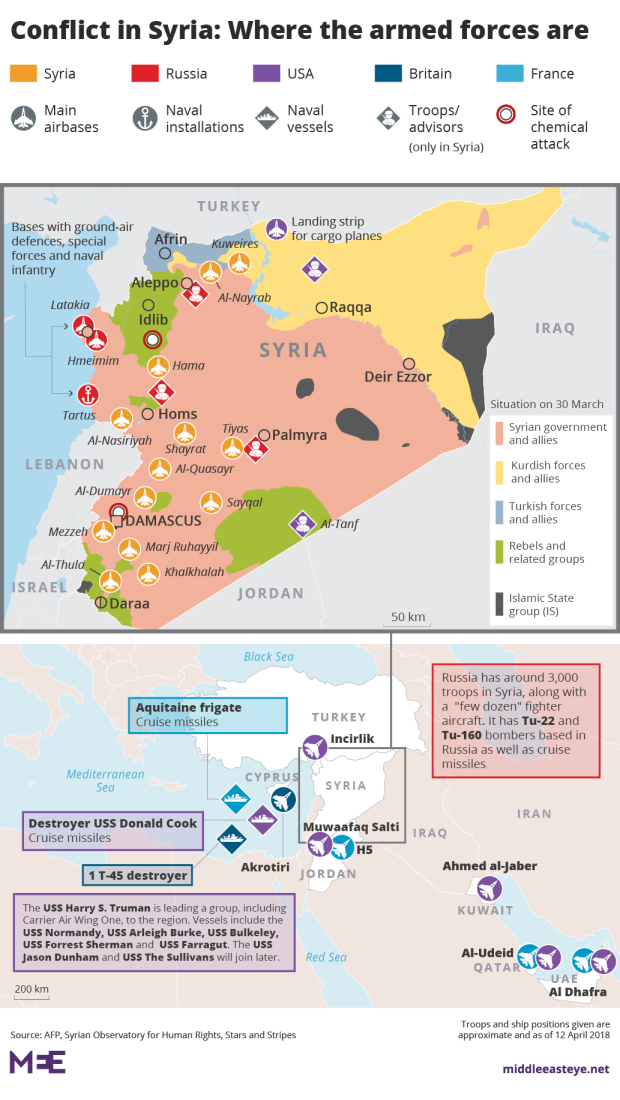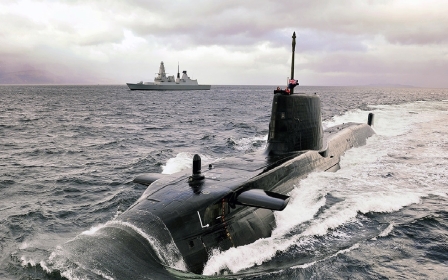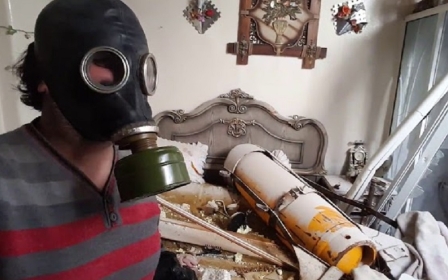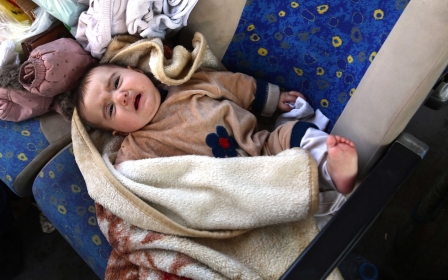Trump and May: We need a 'joint response' to Syria
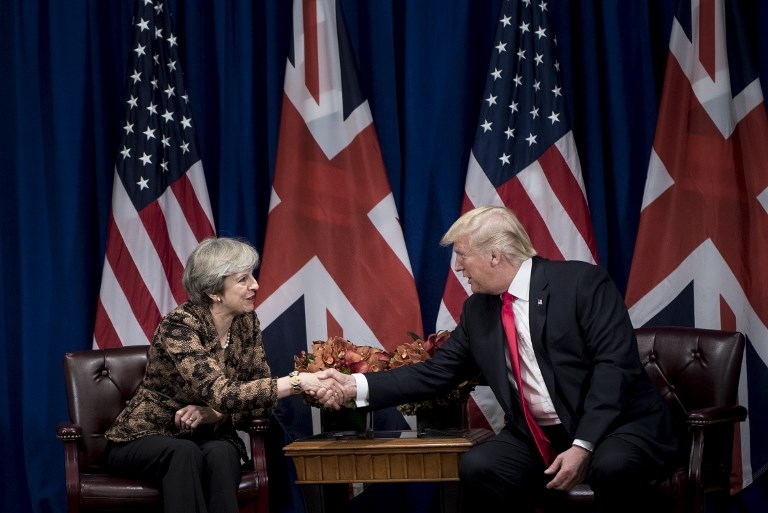
President Donald Trump and British Prime Minister Theresa May have agreed on the need for a “joint response” on Syria.
Earlier on Thursday the US president had appeared to be more cautious about the commitment to an immediate strike against Syrian government targets.
After a crunch meeting with national security advisers on Thursday, his press secretary Sarah Sanders said Trump would continue to assess intelligence and engage with allies.
"No final decision has been made," she said, adding that Trump was scheduled to confer with French President Emmanuel Macron and British Prime Minister Theresa May.
Later, a White House readout of their call said Trump and May "continued their discussion of the need for a joint response to Syria's use of chemical weapons".A Downing Street spokesperson added: "They agreed it was vital that the use of chemical weapons did not go unchallenged, and on the need to deter the further use of chemical weapons by the Assad regime."
Labour calls for UN enquiry
But UK opposition leader Jeremy Corbyn on Friday said that Britain should press for an independent UN-led investigation into the suspected chemical attack in Syria rather than wait for instructions from Trump on how to proceed.
On Thursday May received backing from her senior ministers to take unspecified action with the US and France to deter further use of chemical weapons by Syria. Corbyn has said Parliament should be consulted before any military action.
"The government appears to be waiting for instructions from President Donald Trump on how to proceed," the Labour Party leader said in a statement.
"Britain should press for an independent UN-led investigation of last weekend's horrific chemical weapons attack so that those responsible can be held to account."
'We have irrefutable evidence that this was another staged event, and that the secret services of a certain state that is now at the forefront of a Russophobic campaign was involved in this staged event'
- Sergei Lavrov, Russian foreign minister
Western officials believe chlorine was used in an attack on Saturday on Douma, the main city in the longtime rebel bastion of Eastern Ghouta. The British government now estimates 75 people were killed as a result of the attack, and that Bashar al-Assad's government was responsible.
What is less clear is whether sarin, or a sarin-like agent, was used as well as chlorine.
Russian Foreign Minister Sergei Lavrov on Friday said Moscow had "irrefutable" evidence that the alleged chemical weapons attack was staged with the help of a foreign secret service.
"We have irrefutable evidence that this was another staged event, and that the secret services of a certain state that is now at the forefront of a Russophobic campaign was involved in this staged event," he said during a press conference.
Russia's embassy in Britain said on Friday that Moscow was concerned by a decision taken by British ministers on Thursday to take action in Syria, saying reports of a planned military attack would represent a "reckless" move by London.
The embassy said in a statement that Russian officials who visited the town of Douma in Syria did not find traces of chemical substances.
During the West Wing talks, Defence Secretary James Mattis and Joe Dunford, the chairman of the Joint Chiefs of Staff, were expected to examine options for retaliatory strikes against the Syrian government.
Earlier in the week, Trump had issued a near-daily series of self-imposed decision deadlines. But now he again appeared unwilling to rush headlong to war, despite vowing earlier to make his choice "fairly soon".
His window for military action could be narrowing, with inspectors from the Organisation for the Prohibition of Chemical Weapons expected to arrive in Syria to begin work on Saturday, following an invitation from Damascus.
Diplomats have expressed concern that those experts could be used as hostages or human shields.
Since Saturday, when images emerged of families struggling to breathe in what appeared to be the after-effects of a possible chemical attack, there has been a sustained military build-up by Western governments in the eastern Mediterranean.
A French frigate, UK Royal Navy submarines laden with cruise missiles, and the USS Donald Cook, an American destroyer equipped with Tomahawk land-attack missiles, have all moved into range of Syria's coast.
In New York, Russia's UN ambassador warned that the priority in Syria was to avert US-led strikes that could lead to a confrontation between the world's two pre-eminent nuclear powers.
"The immediate priority is to avert the danger of war," said Vassily Nebenzia, the UN ambassador, following closed-door Security Council talks, refusing to exclude the possibility of US-Russian clashes.
Trump has criticised Russia for its partnership with "Gas Killing Animal" Assad, spurring concerns that a US strike could lead to a conflagration with Russia, which has major military facilities at Tartus and Hmeimim and works cheek-by-jowl with Syrian forces that could be targeted.
US officials have refused to rule out direct military engagement with Russia, with the White House saying "all options are on the table".
Middle East Eye propose une couverture et une analyse indépendantes et incomparables du Moyen-Orient, de l’Afrique du Nord et d’autres régions du monde. Pour en savoir plus sur la reprise de ce contenu et les frais qui s’appliquent, veuillez remplir ce formulaire [en anglais]. Pour en savoir plus sur MEE, cliquez ici [en anglais].


